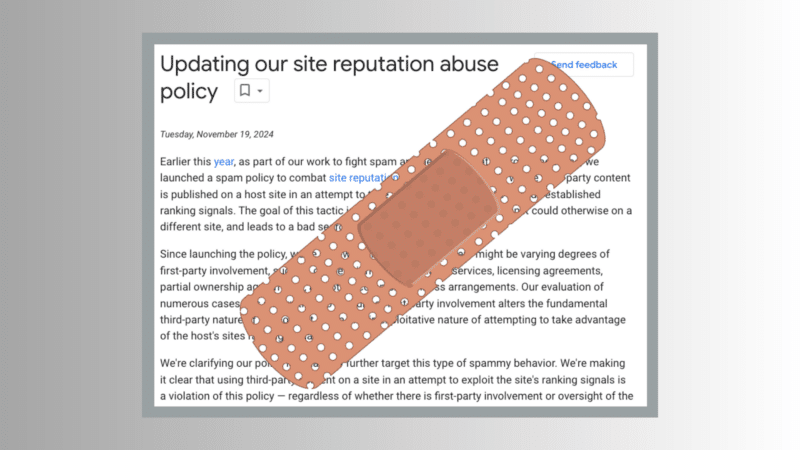
Understanding Google’s Updated Site Reputation Abuse Policy: A Step Towards Cleaner SEO Practices
In a digital landscape where authoritative domains can easily manipulate search rankings, Google’s recent update to its site reputation abuse policy cannot be overlooked. This policy revision, initially rolled out in March 2024, aims to mitigate the growing concern of large websites capitalizing on their domain strength to promote third-party content. With this move, Google hopes to ensure that the content served is representative of the site’s expertise rather than merely its size and authority.
The updated guidelines widen the lens of scrutiny to encompass various involvement scenarios that websites might have with third-party content. This includes partnerships through white-label services, licensing agreements, and partial ownership arrangements. Despite this proactive step, criticism arises regarding whether these changes effectively address the systemic issues plaguing Google’s algorithm, which continues to allow authoritative sites to rank for topics beyond their expertise.
One striking example of this phenomenon is termed “parasite SEO.” Well-established platforms like Forbes Advisor have leveraged their authority to gain traffic and revenue through third-party partnerships, essentially using content they do not create. This issue is particularly pronounced on professional networks like LinkedIn, where user-generated content frequently surpasses specialized expert sites in search rankings, purely because of the domain authority that LinkedIn possesses.
While the site reputation abuse policy serves as a useful guideline to combat some SEO manipulations, the core problem seems to reside within the Google algorithm itself. The persistent ability of large domains to rank favorably, regardless of their topical expertise, indicates a need for a more nuanced understanding of authority in search rankings. Industry experts advocate for a shift in focus from brand authority to topical authority, suggesting that Google’s algorithm should assess a site’s expertise in specific fields rather than relying primarily on size and reputation.
In summary, while the introduction of the site reputation abuse policy marks an important step towards curbing manipulative SEO tactics, it ultimately addresses only symptoms of deeper systemic issues. The anticipation remains that with ongoing algorithm enhancements, Google can further elevate the standard of search results, fostering a more equitable environment for all content creators.
Moreover, the implications of this policy can be intersected with tools like URL shorteners and short link management services. For marketers and content creators, employing URL shorteners can not only enhance the aesthetic appeal of links but can also provide tracking capabilities, thereby gaining insights on the performance of shared content. The integration of such tools becomes paramount for managing the visibility and impact of content in a space increasingly influenced by SEO practices.
#BitIgniter #LinksGPT #UrlExpander #UrlShortener #SEOTips #DigitalMarketing
Want to know more: Read here

